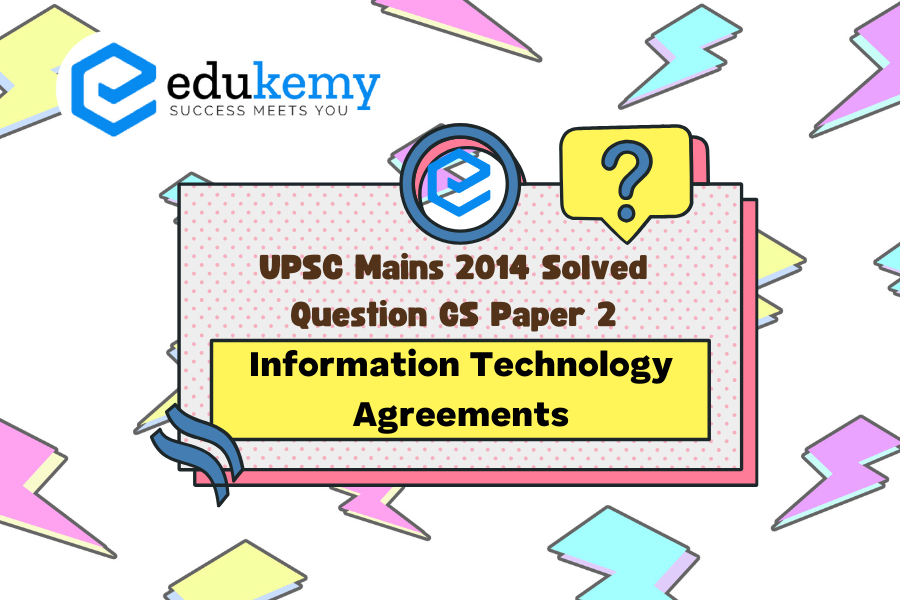Information Technology Agreements (ITAs) are crafted with the ambitious goal of reducing taxes and tariffs on information technology products to zero among participating nations. For India, such agreements carry multifaceted implications. Firstly, as a prominent player in the global IT sector, ITAs present an opportunity for India to significantly lower the cost of importing crucial technology components and equipment, thereby fostering innovation and competitiveness within its domestic market. This could lead to increased investment in the IT sector, bolstering economic growth and employment opportunities.
However, there are potential challenges as well. While ITAs may benefit India’s IT industry by providing access to cheaper technology, they could also intensify competition from foreign firms, potentially squeezing out smaller domestic players. Additionally, the elimination of tariffs could impact government revenue streams, necessitating alternative fiscal strategies. Moreover, India’s trade dynamics with non-signatory countries might be disrupted, necessitating careful negotiation and management of trade relationships outside the ITA framework.
In sum, while ITAs offer India opportunities for economic advancement and technological progress, they also pose challenges that require strategic planning and policy responses to safeguard the interests of domestic industries and ensure sustainable economic development.
Tag: Effect of policies and politics of developed and developing countries on India’s interests.
Contents
Decoding the Question:
- In the Introduction, try to explain ITA, and its impact on India.
- In Body, elaborate impact of such agreements on India’s interests.
- In Conclusion, try to show that ITA will give impetus to the Make in India Initiative.
Answer:
The Information Technology Agreement (ITA) is a significant tariff liberalization arrangement negotiated in the WTO after its establishment in 1995; it led to the elimination of import duties on IT products. It was reached on 13 December 1996, through a “Ministerial Declaration on Trade in Information Technology Products”, at the first WTO Ministerial Conference, held in Singapore.The aim of the treaty is to lower all taxes and tariffs on information technology products by signatories to zero. India is a signatory to the Information Technology Agreement (ITA). India’s experience with the ITA has been most discouraging.
The impact would such agreements have on India’s interests:
- According to the Government of India, experience with the ITA has been most discouraging, which almost wiped out the IT industry from India. The real gainer from that agreement has been China which raised its global market share from 2% to 14% between 2000-2011.
- While India promised to lower its tariff and bring them down to zero in the information technology products under the Information Technology Agreement in 1997, However, it has been taking the argument that the scope of the Agreement back in 1997 was limited and the duties imposed do not cover those products. India had explained that the IT goods in question do not fall under ITA. It had all along maintained that IT and telecom technologies have evolved with new applications and equipment which were neither existent nor even conceived at the time of signing the ITA-I in December 1996.
- The technology has evolved far too much after the agreement was negotiated. It was expanded in 2015 to make its scope more inclusive and India decided to keep itself away from this expansion and new obligations which came with it.
- India, which is a signatory to the ITA, is required to eliminate tariffs on a range of products, including mobile phones. The customs duties on IT products are inconsistent with the commitments India undertook to eliminate tariffs in the ITA.
- Besides, the Information Technology Agreement will make India vulnerable to dumping of cheap products which was witnessed in Steel sector.
Considering recent measures taken by the Government of India to build a sound manufacturing environment in the field of Electronics and Information Technology, this is the time to incubate Make in India industry rather than expose it to undue pressures of competition. Accordingly, and keeping in view the opinion of the domestic IT industry, it is better to not participate in the ITA expansion negotiations for the time being.
In case you still have your doubts, contact us on 9811333901.
For UPSC Prelims Resources, Click here
For Daily Updates and Study Material:
Join our Telegram Channel – Edukemy for IAS
- 1. Learn through Videos – here
- 2. Be Exam Ready by Practicing Daily MCQs – here
- 3. Daily Newsletter – Get all your Current Affairs Covered – here
- 4. Mains Answer Writing Practice – here


